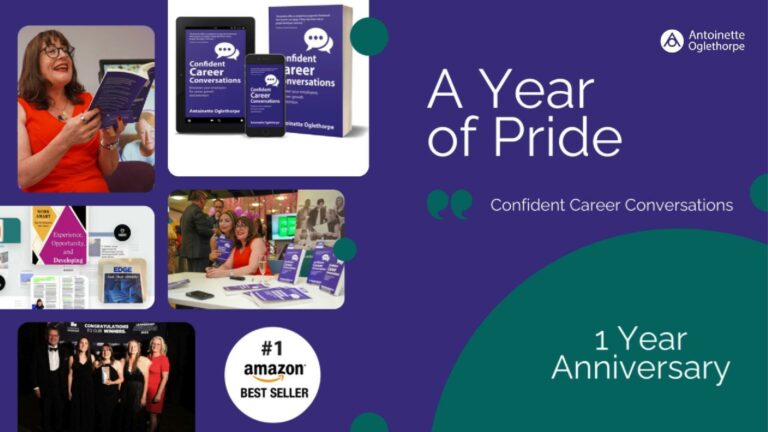In a recent blog post I talked about why career conversations are important. One question I received in response was
“Antoinette – if career conversations are so important, why don’t managers have them?”
It’s a good question. Often the reason is that managers lack the skills and confidence required to conduct career conversations. They fear that talking about career progression will raise questions that they can’t answer. They worry they will set expectations they are unable to fulfil due to constraints on resources such as time and money.
Managers need training to develop career conversation skills. And as part of that training they need to realise that the benefits of career conversations are not only to employees.
There are also enormous benefits that managers and the organisation can gain too. And those benefits largely relate to building agile, adaptable and future-proof organisations. Career conversations allow alignment of employees’ aspirations with current and future business needs. That increases the chances that people will be willing, ready and able to move into the roles that the organisation needs them to play.
Here are five ways in which career conversations benefit managers and the organisation.
1. Alignment between the ambitions of the organisation and the ambitions of the individual
In today’s disruptive marketplace, leaders must develop their employees to grasp market opportunities. Career conversations allow organisations to adjust roles in a way that will take advantage of people’s strengths. They also allow adjustments that respond to people’s interests and aspirations. So, there can be a more agile response to organisation development. It allows employees to identify and explore the alignment between their goals and those of their organisation. In turn, this increases commitment, loyalty and the pool of internal talent available to the organisation.
2. Resourcing new projects, roles and responsibilities
In times of change and growth, effective resourcing and redeployment of skills is more important than ever. Career conversations raise an employee’s awareness of their interests, strengths, values and aspirations. That can help decisions around promotions. It can also inform resourcing decisions related to secondments, project work and lateral moves. Career conversations help move people into roles where their skills are most suited and their aspirations are best met.
3. Growing future leaders and specialists
Career conversations help employees develop skills the business requires now and in the future. The majority of highly-skilled jobs need skills that are specific to the organisation or are hard to recruit. Effective career conversations will also allow employees to be better prepared for new roles. That means the transition into a new role will be smoother and more successful. Career conversations can also help employees understand how their role might change with time. They can then identify and develop skills in readiness for these changes. In this way, career conversations can be a powerful tool for building agile, adaptable and future-proof organisations.
4. Attracting and retaining talented employees
Career conversations help companies attract and keep high performing employees. Ambitious employees look for career coaching and development support. That makes regular career conversations an attractive component of any employee experience strategy.
Employees are more likely to remain with their current employer when offered the opportunity to develop. When career conversations don’t happen, employees were more likely to leave an organisation.
In a global market where skilled workers are in short supply, these practices become even more important.
5. Increases organisation performance
Get career conversations right and individuals will feel connected to their work. They will feel valued for their contribution, and engaged with the organisation. As a result, they will be more motivated to contribute. Their willingness to apply and increase their capability will be enhanced. If each employee performs better and is assisted to reach their full potential, the organisation is more likely to reach its goals.
In summary, career conversations can help build an organisation’s capability to meet future demands. They help keep existing staff as well as attract high quality applicants. That then unlocks a value chain. Individual success improves organisation performance and delivers better business results.
Not having career conversations drives down organisational capability. Employees either quit physically and leave. Or they quit psychologically and stay. Both options have a negative impact.
Are you looking to develop your managers to have effective career conversations? Our Confident Career Conversations Workshop will give you the practical tools and skills you need.
We also have a comprehensive resource library with free or low costs tools to get you started with developing your managers as mentors.



